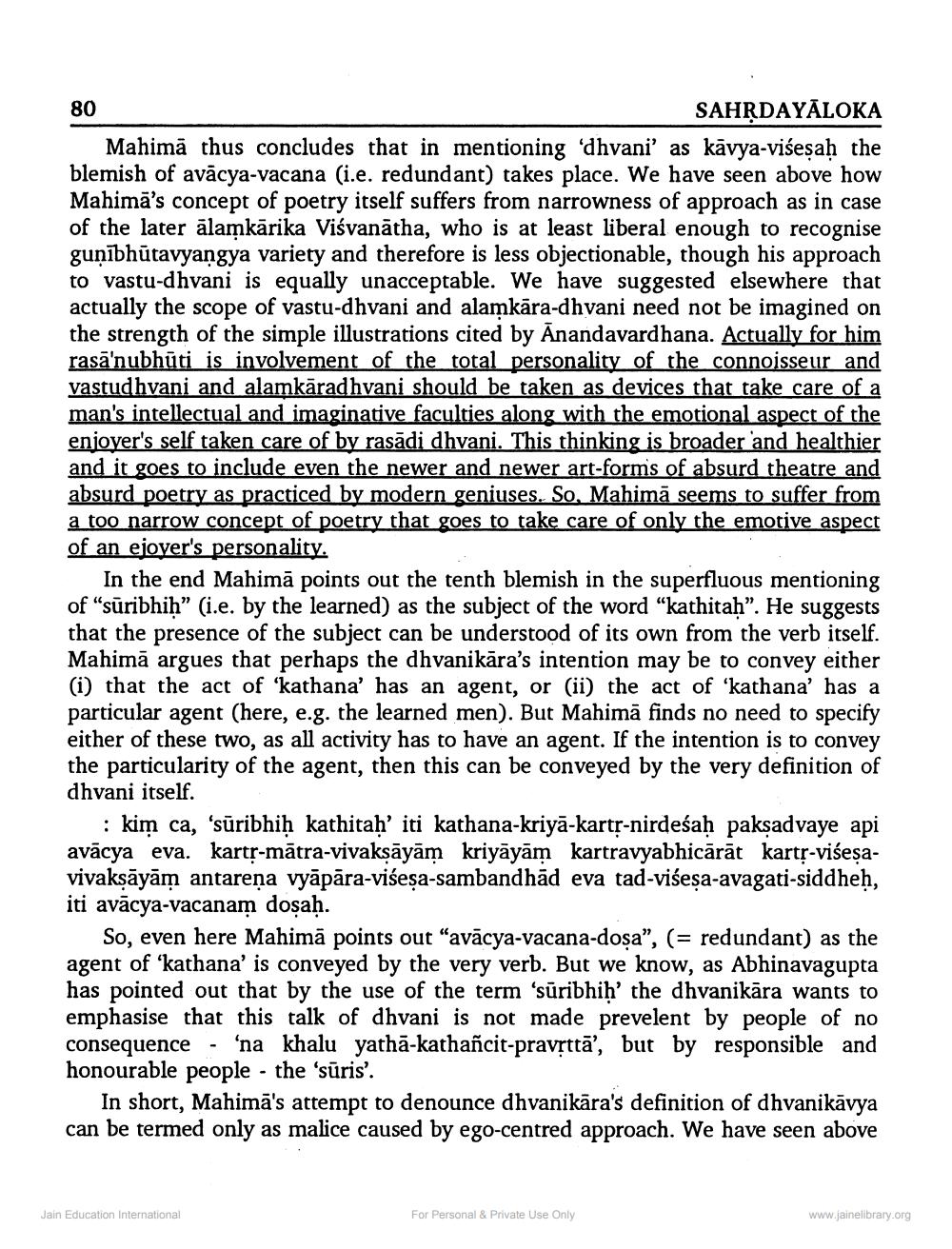________________
80
SAHRDAYĀLOKA Mahimā thus concludes that in mentioning 'dhvani' as kāvya-višesah the blemish of avācya-vacana (i.e. redundant) takes place. We have seen above how Mahimā's concept of poetry itself suffers from narrowness of approach as in case of the later alamkārika Viśvanātha, who is at least liberal enough to recognise gunībhūtavyangya variety and therefore is less objectionable, though his approach to vastu-dhvani is equally unacceptable. We have suggested elsewhere that actually the scope of vastu-dhvani and alamkāra-dhvani need not be imagined on the strength of the simple illustrations cited by Anandavardhana. Actually for him rasā'nubhūti is involvement of the total personality of the connoisseur and vastudhvani and alamkāradhvani should be taken as devices that take care of a man's intellectual and imaginative faculties along with the emotional aspect of the enjover's self taken care of by rasādi dhvani. This thinking is broader and healthier and it goes to include even the newer and newer art-forms of absurd theatre and absurd poetry as practiced by modern geniuses. So, Mahimā seems to suffer from a too narrow concept of poetry that goes to take care of only the emotive aspect of an ejover's personality.
In the end Mahimā points out the tenth blemish in the superfluous mentioning of "sūribhih" (i.e. by the learned) as the subject of the word "kathitah”. He suggests that the presence of the subject can be understood of its own from the verb itself. Mahimā argues that perhaps the dhvanikāra's intention may be to (i) that the act of 'kathana' has an agent, or (ii) the act of 'kathana' has a particular agent (here, e.g. the learned men). But Mahimā finds no need to specify either of these two, as all activity has to have an agent. If the intention is to convey the particularity of the agent, then this can be conveyed by the very definition of dhvani itself.
: kim ca, 'sūribhiḥ kathitah' iti kathana-kriya-kartr-nirdeśah paksadvaye api avācya eva. karts-mātra-vivaksāyām kriyāyām kartravyabhicārāt kartp-višeșavivaksāyām antarena vyāpāra-višesa-sambandhād eva tad-višesa-avagati-siddheh, iti avācya-vacanam dosah.
So, even here Mahimā points out "avācya-vacana-dosa", (= redundant) as the agent of 'kathana' is conveyed by the very verb. But we know, as Abhinavagupta has pointed out that by the use of the term 'sūribhih' the dhvanikāra wants to emphasise that this talk of dhvani is not made prevelent by people of no consequence - 'na khalu yathā-kathancit-pravrtta', but by responsible and honourable people - the 'sūris'.
In short, Mahimā's attempt to denounce dhvanikara's definition of dhvanikāvya can be termed only as malice caused by ego-centred approach. We have seen above
Jain Education International
For Personal & Private Use Only
www.jainelibrary.org




